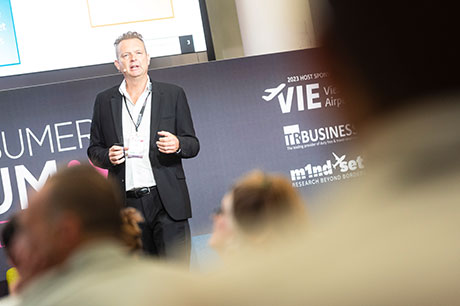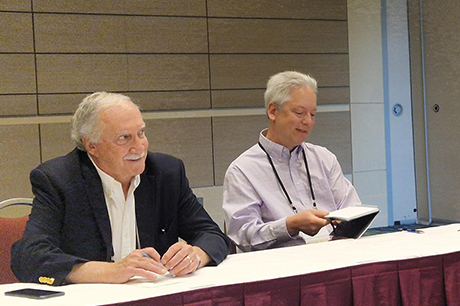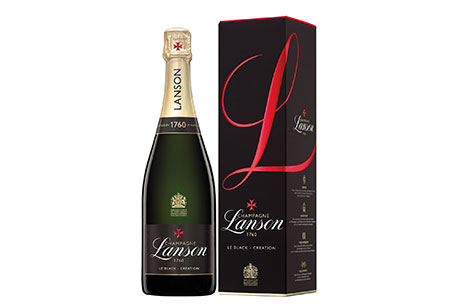Circular efforts producing ‘halo effect’ in Asia Pacific travel retail
By Luke Barras-hill |

SYD has committed to net zero carbon emissions by 2030. Pictured are recently installed ground power units that supply electricity to aircraft when parked.
Sustainability continues to be a core consideration for businesses in Asia Pacific and the pacesetters are those that are enhancing corporate responsibility at the same time as profitability.
Sustainable approaches, eco-investments and green messaging are having a positive effect on DF&TR in Asia Pacific, leading regional stakeholders have told TRBusiness.
“Sustainability is a growing priority for our members and APTRA is keen to support them as they navigate the different dynamics facing airports, retailers and brands,” commented Sunil Tuli, President, Asia Pacific Travel Retail Association (APTRA).
An APTRA working group open to members to enable sharing, learning and – ultimately – recommend best practice in sustainability as ESG (environmental, social and governance) performance becomes quantifiable, is part of that priority.
“Looking ahead, we anticipate these [sustainability] measures will start to influence the regulatory agenda across the region and become a growing aspect of our advocacy work,” continued Tuli.
SYD: GROUND POWER UNITS & PRE-CONDITIONED AIR
Airports such as Sydney (SYD) are making strides in ESG. The hub possesses a sustainability strategy set out in response to the emerging challenges and opportunities shaping global travel retail.
The strategy is focused around three key strands: Responsible Business, Planning for the Future and Supporting our Communities.
In 2019 the airport successfully refinanced A$1.4 billion/$1 billion of bank debt facilities through a sustainability linked loan (SLL), understood to be the first syndicated SLL in Australia and largest syndicated SLL across Asia Pacific.
With the addition of a Sustainability Linked Bond, the mechanisms tie the airport’s cost of capital to performance across a range of sustainability metrics.
“These initiatives underpin our drive to improve our sustainability performance,” said Alicia Burgmann, Head of Sustainability, Sydney Airport.
The airport’s ‘Sustainable Design Guideline’ sets minimum requirements designed to improve said sustainability performance and the long-term resilience of its assets against the impacts of climate change.
“The requirements cover areas such as climate change, energy efficiency, waste and water management and responsible sourcing,” said Burgmann, who points out projects like the recently installed ground power units and pre-conditioned air at new gates and bays.
“This means aircraft can connect to power using electricity when parked, rather than running engines,” she explained. “This reduces both noise and emissions on the ground.”
SUP ACTION STEPS UP
Meanwhile, the fight to reduce single-use plastics (SUPs) through reusable, refillable bottles has become more pronounced in the region as a result of consumers’ increased sensitivity towards sustainability messaging.
“In the airports in Asian countries, there are water dispensers placed near the departure gates which charge no fees,” explained Chenji Yan, Marketing Analyst at HEC Paris’ business school.
“People are used to carrying their own water bottles to fill water in the airport,” said Yan, a panellist during TRBusiness’ trailblazing Travel Retail Sustainability Week in April. “The water dispenser produces both hot and cold water which is suitable for Asian habits as they are more used to drinking boiled warm water.”
Yan has been involved in a project that has been instrumental in identifying suppliers that create sustainable alternatives to plastic and highlighting them for the industry to use more freely.
She said: “What we did was to find plastic alternative suppliers all over the world and compile them into a database. The purpose is to identify all possible touchpoints of SUPs in the airport and propose more sustainable solutions. We separated the edible and compostable materials from other sustainable materials.”
Words: Jessica Mason.
For more on investments in sustainable solutions being made by DF&TR stakeholders across Asia Pacific, click here.
Alcohol insights: Conversion up, spend down in Q4
Conversion of visitors in the alcohol category in duty free has risen to 54% in Q4 2023,...
Men buy and spend more in travel retail says new research by m1nd-set
Men have a higher conversion rate and spend more when shopping in travel retail, says new...
Saudia Arabia's KKIA unfurls T3 duty free expansion
King Khalid International Airport (KKIA) has unveiled the first stage of its much-vaunted duty...
-
 Asia & Pacific,
Asia & Pacific,Alcohol insights: Conversion up, spend down in Q4
-

-
 Asia & Pacific,
Asia & Pacific,Saudia Arabia's KKIA unfurls T3 duty free expansion

In the Magazine
TRBusiness Magazine is free to access. Read the latest issue now.

 Trbusiness. The travel retail Trbusiness. The magazine for global retail and duty free professionals.
Trbusiness. The travel retail Trbusiness. The magazine for global retail and duty free professionals.























